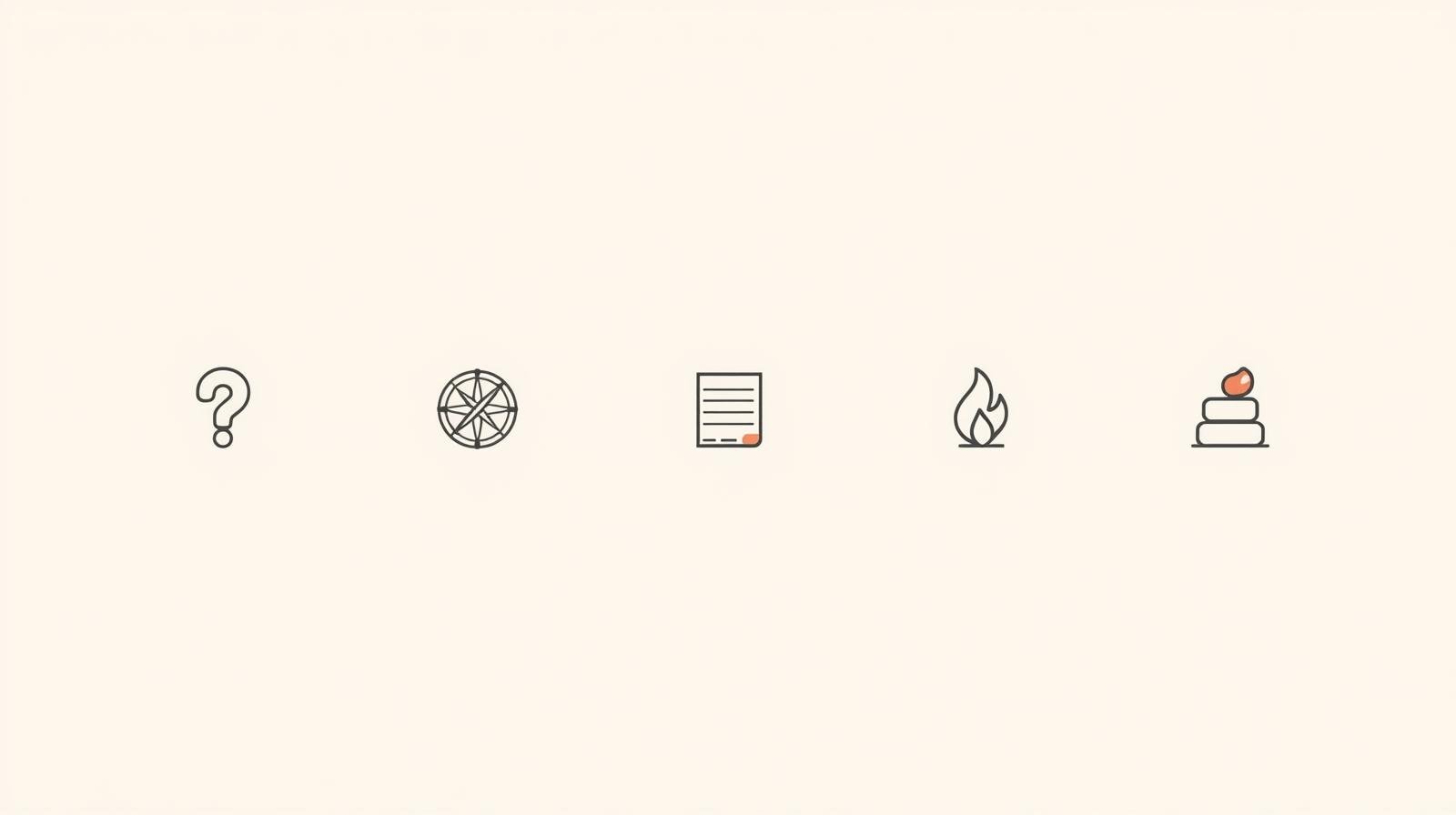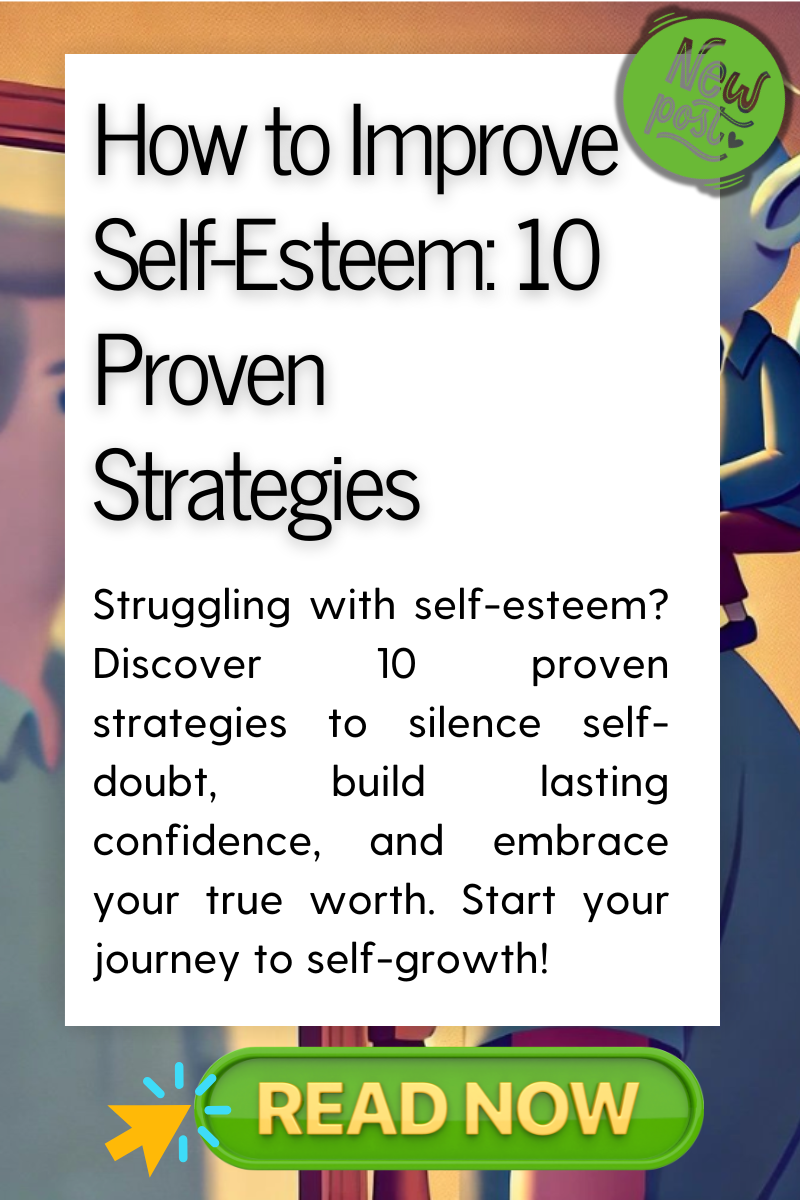6 Deep Questions to Help Find Your Life Purpose
The Quiet Urge to Know Why You’re Here
There comes a moment when the map stops making sense. The job looks fine on paper, the relationship checks the boxes, yet something inside feels misaligned. That question—why am I here?—can feel intimidating, but it’s really an invitation. Finding your life’s purpose isn’t about one perfect answer; it’s about asking a series of questions and listening for the right questions that strip away noise until what’s left is honest.
Purpose doesn’t shout; it waits beneath routines, fears, and the life experiences that shaped your own life. Think of this guide as a mirror: six deep prompts that pull you back to your personal journey, your values, and your true purpose. You don’t need to reinvent everything at once. You need curiosity, one simple question at a time. That’s part of the process toward a higher purpose and a more fulfilling life.
1) What Moments Make You Lose Track of Time?
Flow, core values, and clues to true life purpose
What makes entire days disappear? Those moments often sit at the intersection of attention and joy, where effort feels natural and time folds in on itself. When you’re doing something aligned with your core values, you enter flow. You stop forcing life into shape and start cooperating with it.
Maybe it’s writing, mentoring, building, performing, parenting, or fixing what others overlook. These are breadcrumbs pointing toward a life of purpose. The funny thing is we often undervalue what’s easy for us, assuming it can’t be our calling because it came without struggle. But that ease is sacred—it’s the quiet signature of alignment and one of the best ways to notice what matters.
Key question: where in your week do you forget to check the clock, and why?
2) What Would You Do If Money and Approval Didn’t Matter?
Unique strengths, like-minded people, and a new career path (if needed)
Imagine a world without applause—no likes, no promotions, no judgment—just you, free to create or serve. What rises in that silence is truth. Most of us build within invisible cages: social pressures of adolescence, the professional pressures of young adulthood, and family scripts about success. Questioning them isn’t rebellion; it’s self-respect.
Strip away the metrics and ask: if everything I did today were anonymous, what would I still choose to do? If you had unlimited resources and zero need to impress anyone, where would your attention go? That answer reveals your unique abilities and career aspirations untouched by performance. You may find the dream isn’t a dream job at all but a true calling expressed in a different way with like-minded people—or even a new career path that fits who you really are.
Important question: what would you keep doing in complete privacy, even in your free time, if no one ever knew?
3) What Pain Taught You Most About Who You Are
Life lessons, personal growth, and meaning beyond hard seasons
We avoid pain like poison, yet it’s often our purest teacher. Every heartbreak, failure, and loss holds instructions for the next version of you. The unpleasant experiences you’ve faced aren’t detours; they’re shaping forces. When you mine them for meaning, they become fuel for personal development.
Ask: what moment hurt most but clarified what really matters? Maybe burnout taught you to question 80-hour workweeks and the transactional nature of the world. Maybe a breakup revealed a need for honesty over comfort. Perhaps anxiety pulled you toward mental health care, boundaries, and a good routine that protects your peace. Transformation hides inside discomfort—pain carves out space for a bigger purpose to move in and a more meaningful life to begin.
Different question: where has struggle made you a better kind of person—more compassionate, more honest, more awake?
4) What Would Your 8-Year-Old Self Recognize Today
Sense of self, right direction, and small brave experiments
Kids have a built-in compass for authenticity. They play without purpose yet live on purpose. Think back to what you loved before “practical” took over. Did you draw, explore, take apart gadgets, make up worlds, join a dance class, get lost in video games, or dream of being a professional artist?
That curiosity is the DNA of your sense of self. Over time, it gets buried under education systems, comparisons in high school, and the weight of current responsibilities—but it never disappears. Ask: what would my 8-year-old self think of my life today? Would they see wonder or only work? The goal isn’t to go backward; it’s to remember forward. Try a book club, meet new people, or start a new hobby purely because it sparks positive emotions. Reconnecting with who you were helps you step back onto the right track and continue your journey of self-discovery.
5) What Would You Pursue If Failure Were Impossible
Comfort zone, daily action, and continuous improvement
Fear wears many disguises—perfectionism, procrastination, hyper-logic—but underneath is the fear of being seen trying. Imagine failure didn’t exist, only learning. What would you chase then? That question cracks open the comfort zone and exposes the edges of your full potential. The projects you’ve avoided aren’t warnings; they’re invitations.
Start small. Continuous improvement begins with daily action—one email, one sketch, one outreach, one rep. Confidence doesn’t precede movement; it follows it. Hard work matters, but the kind of shitty logic that says “I’ll act when I’m ready” keeps you stuck. Read fewer TED Talks summaries and ship more drafts. It’s an infinitely better question to ask: what can I ship today to become my best self?
6) What Do You Want to Contribute Before You Die
Positive impact, legacy, and clear purpose in everyday life
This isn’t about grand gestures; it’s about impact that ripples through small, consistent acts. Forget the bucket list for a moment and ask: what would make me proud of my story? Not a fantasy world—a lived one. Legacy isn’t measured in years but in meaning. You build it each time you help someone grow, create something that lasts, or live in alignment with your deepest values.
Purpose can be quiet and faithful: raising good humans, making art, mentoring through social issues, or seeing the bigger picture beyond yourself. It might mean leaving a toxic team, starting a community workshop, or choosing a role that serves others even if it isn’t the shiny path your brother’s life decisions would suggest. A life of purpose is built from the most important things repeated daily. It’s not a one-way ticket to ease; it’s a rhythm of honest choices and steady service.
Key question: what would tomorrow’s you thank you for starting today?
Key Insights: Remembering Your Life’s Purpose
Purpose isn’t hiding somewhere out there; it has been walking beside you the whole time. These questions don’t hand you a map—they offer a mirror. When you pause long enough to look, you recognize patterns: the pulls you can’t ignore, the lessons that won’t let go, the moments that still feel like you. That’s where clear purpose lives—not in a lightning bolt, but in quiet recognition. You don’t find your life’s purpose; you remember it.
Journal prompt: Which question won’t leave your mind? Sit with it and write for ten minutes without editing. See what your life is trying to tell you.
Turn Reflection Into Action: Coaching for Finding Purpose
If your answers surprised you, good—that means something real is waking up. The next step isn’t a bigger plan; it’s aligning your daily life with what matters most. That’s the bridge between insight and clarity. Josh offers coaching sessions designed for moments exactly like this—when you sense there’s more but need a clear way forward. Book a Free Consultation and start building the life your purpose has been hinting at all along.
Life Purpose FAQ: Most Common Questions and Honest Answers
1) How do I find my sense of purpose?
Start by asking better questions, not by hunting perfect answers. Purpose shows up when actions align with core values. Revisit the six prompts—the following questions are designed to surface the right questions for you. If you want support translating answers into habits, book a consult.
2) What if I don’t know my core values yet?
Totally normal. Most of us inherit values before we choose them. List ten decisions you’re proud of and circle the principles underneath—those are your deepest values. A coach can help you name and live them.
3) Can my purpose change over time?
Yes. Life experiences evolve, so expressions of purpose do too. Think river, not destination. That shift is part of the process and part of your personal journey.
4) How does personal growth connect to purpose?
Personal growth is the process; purpose is the direction. Each time you face fear, heal, or try new things, you’re living purpose now—not waiting for it. Small experiments are among the best ways to learn what sticks.
5) Is a purposeful life always a happy life?
Not always, but it’s meaningful. Positive emotions rise and fall; meaning offers a compass through all weather. Purpose won’t guarantee the best life—it helps you make better life choices and become your best self.
6) What if my career doesn’t feel meaningful anymore?
You may have outgrown an old identity. Explore a new career path without blowing up current responsibilities. Clarify your career aspirations, talk with like-minded people, and run small portfolio projects.
7) How do I turn pain into purpose?
Refuse to waste your suffering. Ask what the experience tried to teach you, then convert that lesson into service, skill, or boundary. Daily action compounds over time into a more meaningful life.
8) Can a life coach really help with finding purpose?
Yes—if they help you think, not tell you what to think. A good coach is a mirror and an ally, keeping you on the right track with clarity and accountability. They help you notice when you’re part of the problem and where you can be part of the solution.
9) What’s the first step to clarity?
Slow down and notice patterns. Journal for five minutes. Sometimes one important question beats twenty wrong answers. When stuck, ask the infinitely better question: what tiny step can I take today?
10) What if I never find one big purpose?
Most people live many small purposes across seasons—family, craft, service, healing. The bigger picture is to stay honest with your choices and keep moving.
Bonus quick hits (the most common email questions):
• Is there a one-way ticket to purpose? No—honest action is the closest thing.
• Do I need to quit my job? Not necessarily. Start side experiments first.
• Stuck in a toxic team? You’re not part of the problem if you’re choosing integrity and planning your next step.
• Working endless hours? Question the myth of 80-hour workweeks; efficiency beats burnout.
Essential Reads for Personal Growth and Finding Purpose
Books won’t hand you purpose, but the right ones can help you hear your life more clearly. Choose one that matches your season—career shifts, healing, creativity, or discipline.
The Way of Integrity — Martha Beck
A straight line back to truth. Integrity is dropping the ridiculous baggage that keeps you split inside—one of the best ways to get aligned.
Man’s Search for Meaning — Viktor Frankl
Meaning in the midst of suffering. A masterclass in agency—even when life tastes like the flavor of shit sandwich you didn’t order.
Atomic Habits — James Clear
Small steps, big change. Turn reflection into daily action without drama; systems over willpower.
The Untethered Soul — Michael A. Singer
Let go, open up, stay present. A companion for releasing the tight grip of control.
Reading opens doors; living what you learn builds purpose. Join a book club, invite new people, keep the conversation going.
About Josh – Life Coach & Purpose Pathfinder
Josh helps people reconnect with clarity, confidence, and direction when life feels uncertain. He works with professionals rethinking life choices, creatives rebuilding identity, and seekers craving clear purpose that feels real. His coaching isn’t motivation hacks—it’s a journey of self-discovery back to your unique strengths, your values, and the next honest step.
Sometimes that means leaving a role that pays well but drains you. Sometimes it’s charting a route from corporate grind to professional artist. Sometimes it’s building a life that leaves space for your kids, your craft, and your free time. If these six questions stirred something in you, that’s where coaching begins. Book a Free Consultation and let’s move from reflection to action, one step at a time.
Real-World Notes for a Purposeful Life
You don’t need perfect mornings or permission from a panel of TED Talks. You need honesty, small experiments, and a bias for action. You’ll meet wrong answers, confusing advice, education systems that trained compliance, and the transactional nature of the world. You’ll also meet great warriors in ordinary clothes—people who show up, do the work, and build purpose brick by brick.
Purpose isn’t a one-way ticket to ease; it’s a practice. Some weeks it looks like a bunch of badass shit shipped despite fear. Other weeks it looks like rest, reflection, or telling someone you love them. Either way, you’re already on your way.
























